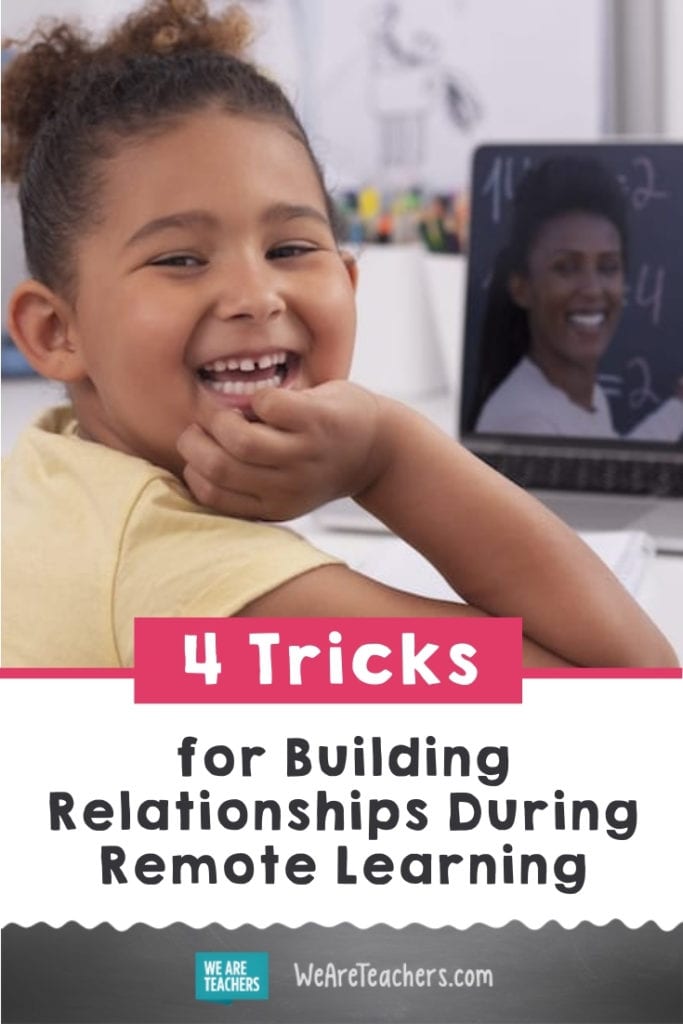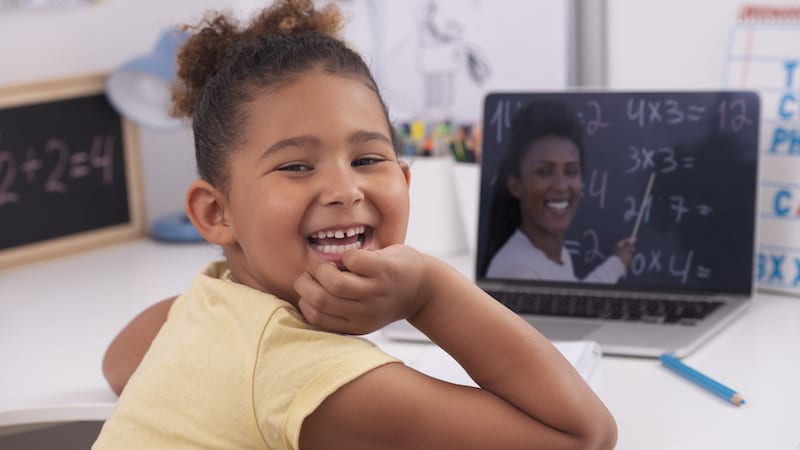In the “before times,” as my students and I refer to the era prior to March of 2020, visitors walking past my classroom might see me performing some sort of interpretive dance in an effort to attract the attention of students who may have found themselves distracted from the task at hand. They may hear a spirited debate about the merits of candy corn, sparked by our daily attendance questions. They might witness a quiet conversation with a struggling student while I reassure them that tomorrow is a new day.
Then we suddenly had to pivot in the spring to remote learning … and again in the fall to the hybrid model. I worried about how I would create connections and build solid relationships with my students when we would not physically occupy the same space for the majority of the week. I struggled with being the connected and caring teacher I strive to be with kids on screens instead of in seats.
Today, my classroom is markedly empty. I wait for cohorts of my students to “phase in” to the building part-time. Visitors might note the multiple screens projecting the tiny spaces which my students occupy during class. Those unable to see my screens might think I’m performing in a one-act play. I gesture wildly and occasionally sing. It’s all an effort to combat the deluge of distractions available to kids at home. My students admonish me about the number of emails in my inbox when I share my screen. But, they also ask to stay in the Meet a few more minutes just to chat.
The “tricks” I use to connect with my kids remotely aren’t anything new, nor are they perfect. These tips for building relationships during remote learning are variations of what I would do in the “before times” and strategies that I am sure most of us already employ.
[contextly_auto_sidebar]
1. Tell Stories
For many, even at the middle school level, teachers are still seen as mythical creatures. We intently focus on homework and decorum, live under our desks over the weekends, and anxiously await the return of our students.
But, now more than ever, it is important to be “human” with your students. I frequently point out my mistakes to my kids. Errors are a part of life, and I let them know that not being perfect is ok. I share stories about my ongoing sibling rivalry with my brother, my irrational fear of the Incredible Hulk, and my love affair with coffee. Are these part of the curriculum? No. But they remember these moments, and they serve as a foundation for the types of relationships that will push them to achieve and allow them to take risks.
2. Ask Questions
I ask the kids a “This or That” or “Would You Rather” question at the beginning of each class. (The Townie Teacher on IG has an amazing free resource for ideas.) It takes no more than five minutes. But, it allows me to lay eyes on each student and sparks some interesting conversations. (Who knew middle school students had such strong opinions on the virtues of chicken nuggets vs. chicken tenders?) What seems like such a small thing both sets a tone of community and paves the way for other, more intense discussions as the year goes on.
3. Get Feedback
I frequently ask my students their opinions on assignments, materials, and even my presentation. I even asked them for their input before writing this article! Giving students a low stakes option to give feedback, such as an Exit Ticket on Google Forms, allows them to feel like their views in this classroom community matter. I make sure to discuss their feedback with them to show that they are heard and their feelings validated. This builds trust with you and their classmates. Because building relationships during remote learning isn’t just about you and the students. It’s about the entire classroom.
4. Be Understanding
In reading about the policies that other districts have put into place in regards to remote learning, I was shocked (and more than a little horrified) that some schools require students to wear shoes in their own homes during virtual lessons. Even ignoring the time and energy that it would take to police this policy, what message does this send to students? We care more about your feet being covered than your well-being and education? In a battle between compliance and connection, focus on the latter.
In our few short weeks of meeting virtually, I have had one student express her gratitude that I allowed her to respond via the chat. Her younger siblings often cause a ruckus, making it difficult for her to be heard. Another student requested permission to angle his screen as to not show the clutter in his shared bedroom. The relief on both of their faces solidifies for me that connection should be a priority regardless of setting.
How do you build relationships during remote learning? Share in our WeAreTeachers HELPLINE.
Plus, my students’ cameras are off, but here’s how I’m keeping them engaged.

